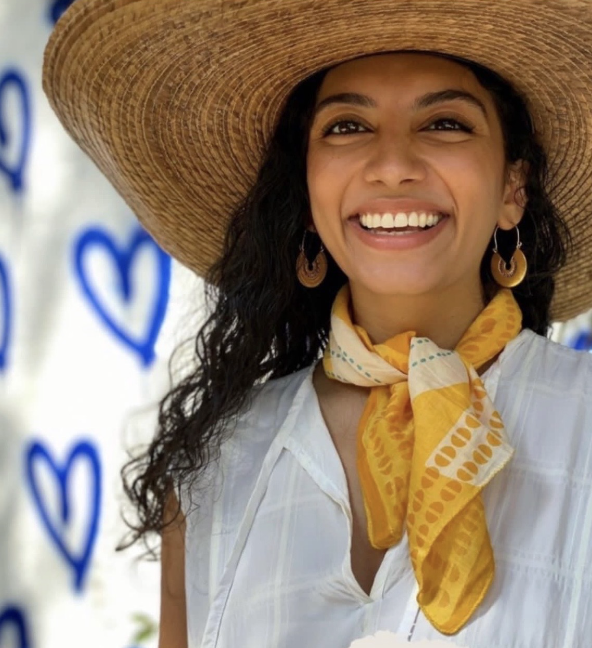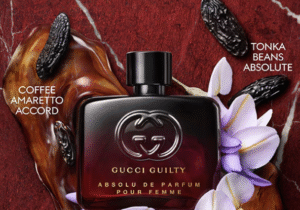Founder and CEO, Sofiya Deva, grew up in a combination of India, New York and Dallas, and has felt like a global citizen for as long as she can remember. She’s been a yoga teacher, a magazine editor, a creative director and a marketing exec, but at her heart, has always dreamed of creating a smaller, stranger world. Inspired by travel, the strength of women in shaping community, and the artistic process of cross pollinating cultural currents, she created The Postcard Edit as a way for people to discover, shop and support designers off the beaten path. She has been featured in Inc., Entrepreneur, Forbes, Thrive Global and GritDaily for her insights on consumer trends in retail, social entrepreneurship and her advocacy for handicraft workers and craft traditions.
Can you tell us a little about your background and the company?
I had a very fast paced lifestyle as a marketing exec, and began to really question the culture of consumption we were steeped in. I craved a more slow, intentional, and connected way of life. At the same time, I longed to bridge between my Indian and American identities. It was a leap of faith, but I left my agency and started an artisan made accessory brand, to create dignified livelihoods for block and screen printers in Jaipur (one of India’s most legion craft hubs), while inspiring a mindful day-to-day for our customers.
How did the idea come to you for the company?
As my own understanding of the space deepened, I realized that a more effective way to help artisans on the ground was to showcase the local designers who were already translating traditional techniques and hiring makers, often with a tremendous sense of pride, and sensitivity. I asked the simple question, what if we cooperated, instead of competed?
With that, the company morphed into a discovery platform for these talented, but underrepresented, designers, and we rebranded it as The Postcard Edit.
How did you achieve awareness?
The reboot of the brand is relatively recent, and right now we’re mostly focused on grassroots engagement. Storytelling, building community, listening to our customers and being responsive to their needs, concerns and desires. It’s a huge comms lift, but it’s not always about volume. It’s as much about precision as frequency, and as much about empathy as influence.
Educating customers is a big part of the work because we really want them to come on this journey with us, and understand the long tail effects of their purchase.
How have you been able to gain funding and grow?
The long term plan is to build out a b2b platform, where boutiques can shop the collections and place small batch bulk orders. Once we’ve expanded the waitlist, established proof of concept and worked out the kinks with international shipping, we’ll bring in investors to support the expansion.
What are the key successes?
The wins so far have really been the designer enthusiasm for the concept, and the validation from activists and journalists in the fashion space that this kind of new and disruptive model is both needed and welcome. We’ve also been getting lots of customer feedback on just how fresh, comfy and stylish the collection looks and feels.
What were/are the challenges and how have you overcome these?
In a pay-to-play attention economy, it’s hard to compete with larger retailers with exponentially more data and advertising dollars. So we have to get very creative and personal in terms of how we engage customers, and build relationships, rooted in a new vision of inclusive fashion.
What are your plans now/for the future?
We want to be seen as Farfetch with an ESG angle, and grow to that level of recognition while maintaining our roots in curation, travel and championing new voices.
What would you like to share with others to encourage them to start their own entrepreneurship journey?
You’ll learn by doing, so don’t wait to have all the answers to get started. You’re braver than you think, and have a unique voice and point of view that the world needs.
Can you share your top tips for entrepreneurial success?
Protect your time, energy and peace, so you can offer the best of yourself to your business, team and loved ones.
Don’t get too attached to any one idea, or approach. Be systems and process oriented, and learn to switch between brand evangelist and devil’s advocate. You need both perspectives.
Who are the people who inspire you the most and why?
I’m really inspired by female founders, who are breaking new ground and acting on their own values and inner compass.
Deepa Purushothaman—Who is shining a light on the experience of WOC in the workplace. I’ve learned so much about the dynamics of power and representation from working with her.
Ashley Davis—Who is running Uncharted in Sri Lanka. I’ve learned so much about the role of wellness and personal integrity in the path of social entrepreneurship from her.
Katie Wallace—Who is an incredible mom, and poet. I’ve learned so much about following your heart and nurturing inner wisdom from her.
Shree Bharathi Manoranjan—Who is at the head of Five P in Tamil Nadu. Her work with the weavers of Chennimalai and the overall decent working conditions she’s created for her extended team give me hope for a new kind of production mindset, one driven by stewardship, legacy and kindness.
Dr. Megha Phansalkar—Who is a force in connecting craft clusters in India. She’s built a network of over 10,000 artisans , and her operations savvy is creating a new kind of scale and consistency in the sector.
Bell Hooks and Maya Angelou are frequent guides for me, and their writing nourishes me deeply.
But I also always come home to Rumi, who reminds us that what we seek is also seeking us.
Website
www.thepostcardedit.com
IG
@sofiyadeva
@the.postcard.edit
FB
@thepostcardedit
LI
https://www.linkedin.com/in/sofiya-hyder/
TSF Reporters
The Successful Founder Magazine is the go to feature-rich magazine for founders on all stages of their entrepreneurship journey .
- TSF Reporters






